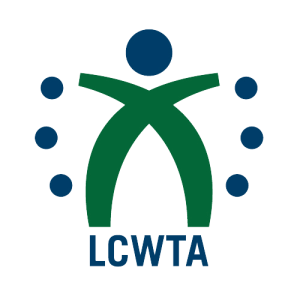Calendar

This six-hour training on the topic of Intrafamilial Child Sexual Abuse is being offered in three parts and will take place on Tuesday, October 15, 22 and 29 from 1:00 pm to 3:00 pm Eastern. This training series is targeted for staff working in child welfare related agencies and anyone working with children and their families where there has been no formal disclosure, but sexual abuse is suspected.
In most cases, there will not be a formal disclosure that warrants the involvement of law enforcement or child protective services. The hope is that each one of us can contribute in their own way to support children to access help when they are ready, and that no opportunity is missed through lack of knowledge, skills, or tools to interact with a child that is demonstrating signs of abuse.
This training series will have a special focus on father-child intrafamilial child sexual abuse which will include fathers, stepfathers, and male partners. The intent of these interactive sessions is to build capacity for primary, secondary, and tertiary prevention, identification, and intervention with families.
The facilitators hope to impress on the participants the scope of this issue and the long-lasting impact of trauma on children that experience this type of abuse. Special attention will be directed to building practice wisdom and understanding of psychosomatic symptoms, concepts such as complex trauma and the overlap with other clinical presentations.
Participants may grapple with the great responsibility of decision making in these cases. Verification of concerns can be the first step to intervention or if made in error cause unneeded separation within families.
This training will also focus on interconnected themes and demonstrate connections to enhance practice and client engagement. The topics covered will include the role of the practitioner, application of theory, research, and practice philosophies, to support practice. Assessment tools will be provided which may support practitioners to gather and assess data.
The assessments process will include information gathering, understanding the context in which abuse occurs and the many powerful barriers that function to prevent detection. Topics such as pre-abuse functioning, family functioning and presentations, symptomology-victimology link, and the importance of strategy for engagement with children will also be discussed.
Inquiry into the dynamics of intrafamilial child sexual abuse enables inquiry into the beliefs, actions, and behaviors of children, offenders and in many cases the parent(s) who did not offend. The facilitators will also touch on strategies for engagement with each party for the triangulation of data. A holistic, non-accusatory inquiry strategy supports engagement and the collection of valuable information for assessment and ways of working with the family.
Facilitators:
Dr. Delphine Collin-Vezina, a trained psychologist and full professor at McGill University in Quebec, Canada. She is also an expert in child sexual abuse and trauma and has over twenty-five years of experience.
Gerald Walsh, MSW, RSW, a front-line child welfare investigator with Child and Family Services of Grand Erie, Ontario, Canada. He is a presenter of investigative techniques and has been involved with the training of social work students, child welfare staff, and law enforcement.
Special acknowledgement is also given to the valuable contributions of Andrew Koster, MSW, RSW and co-author of the recent book titled Child Sexual Abuse Investigations and Assessments published by CWLA.

Parenting is challenging, particularly when you are parenting a child from a hard place. TBRI ® Empowering Principles will provide an in-depth look at ways to empower your children by meeting their unique physical needs and creating an environment in which they can succeed. This session includes information on sensory processing and practical tools and skills to help children regulate their emotions and behaviors. This multi-disciplinary training is designed to give caregivers, volunteers, and professionals who serve children and families the knowledge and practical skills they need to bring hope and healing.
This multi-disciplinary training is designed to give caregivers, volunteers, and professionals who serve children and families the knowledge and practical skills they need to bring hope and healing. This live, online training has 4 video-conferencing modules, giving participants the opportunity learn in an interactive environment.
Please Note: Participants must attend TBRI Introduction and Overview prior to attending this training.
Module 1: Empowering
Learning objectives:
1. Understanding regarding how to help teach children self-regulation through internal (physiological) and external (environmental) strategies
2. Understanding the importance of felt safety and how it enables learning and growth in children
3. Understanding the effects of dehydration and fluctuations in blood glucose and how to proactively avoid such fluctuations.
4. Mindset shift surrounding the question, “What is the need behind this behavior?”
5. Understanding regarding the functions of the external and internal senses
6. Understanding how trauma has affected the sensory systems of children and how these deficits are often mistaken as willful misbehavior.
Module 2: Empowering
Learning objectives:
1. Watching empowering principles put into practice in behavioral episodes
2. Recognizing the importance of felt safety, connection, and setting the behavioral bar appropriately in relationship with a child’s ability to self-regulate.
3. Understanding the need for support during transitions for children who have experienced trauma and how to implement those needed supports.
4. Understanding the progression from external regulation to self-regulation and how to mentor children’s capacity to self-regulate.

By registering for Generations United’s 23rd Global Intergenerational Conference held on June 25-27, 2025, you will have access to:
-
Dozens of expert-led workshops in a variety of educational formats
-
Four general sessions featuring high-impact speakers and thought leadership
-
Session handouts and PowerPoint presentations
-
Countless opportunities for networking and building face-to-face connections
-
Access to Whova, a digital platform for managing your personal conference schedule and contacts
-
Furthermore, our conference will connect you with an engaged network of over 400 of your peers. This includes professionals, educators, caregivers, advocates, and enthusiasts from around the world who are committed to learning, connecting, and sharing innovative practices and programs on a range of intergenerational topics including kinship and grandfamilies.
